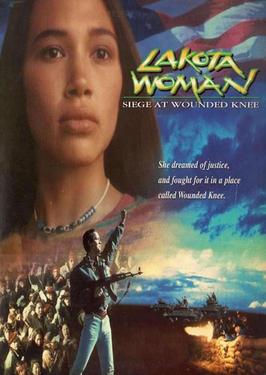
The Pawnee are a Central Plains Indian tribe that historically lived in Nebraska and northern Kansas but today are based in Oklahoma. Today they are the federally recognized Pawnee Nation of Oklahoma, who are headquartered in Pawnee, Oklahoma. Their Pawnee language belongs to the Caddoan language family, and their name for themselves is Chatiks si chatiks or "Men of Men".

Sitting Bull was a Hunkpapa Lakota leader who led his people during years of resistance against United States government policies. He was killed by Indian agency police on the Standing Rock Indian Reservation during an attempt to arrest him, at a time when authorities feared that he would join the Ghost Dance movement.

The Dog Soldiers or Dog Men are historically one of six Cheyenne military societies. Beginning in the late 1830s, this society evolved into a separate, militaristic band that played a dominant role in Cheyenne resistance to the westward expansion of the United States in the area of present-day Kansas, Nebraska, Colorado, and Wyoming, where the Cheyenne had settled in the early nineteenth century.

Crazy Horse was a Lakota war leader of the Oglala band in the 19th century. He took up arms against the United States federal government to fight against encroachment by white American settlers on Native American territory and to preserve the traditional way of life of the Lakota people. His participation in several famous battles of the Black Hills War on the northern Great Plains, among them the Fetterman Fight in 1866, in which he acted as a decoy, and the Battle of the Little Bighorn in 1876, in which he led a war party to victory, earned him great respect from both his enemies and his own people.

Russell Charles Means was an Oglala Lakota activist for the rights of Native Americans, libertarian political activist, actor, musician and writer. He became a prominent member of the American Indian Movement (AIM) after joining the organization in 1968 and helped organize notable events that attracted national and international media coverage.
Rodney Arnold Grant is an American actor. He is best known for his role as "Wind In His Hair" in the 1990 film Dances with Wolves.

Norman Eugene "Clint" Walker was an American actor. He played cowboy Cheyenne Bodie in the ABC/Warner Bros. western series Cheyenne from 1955 to 1963.

Wesley Studi is a Native American actor and film producer. He has garnered critical acclaim and awards throughout his career, particularly for his portrayal of Native Americans in film. He has appeared in Academy Award-winning films, such as Dances with Wolves (1990) and The Last of the Mohicans (1992), and in the Academy Award-nominated films Geronimo: An American Legend (1993) and The New World (2005). He is also known for portraying Sagat in Street Fighter (1994). Other films he has appeared in are Hostiles, Heat, Mystery Men, Avatar, A Million Ways to Die in the West, and the television series Penny Dreadful. In 2019, he received an Academy Honorary Award, becoming the first Native American and the second Indigenous person from North America to be honored by the Academy.

The Cheyenne River Indian Reservation was created by the United States in 1889 by breaking up the Great Sioux Reservation, following the attrition of the Lakota in a series of wars in the 1870s. The reservation covers almost all of Dewey and Ziebach counties in South Dakota. In addition, many small parcels of off-reservation trust land are located in Stanley, Haakon, and Meade counties.
Karen Kay is the pen name for Karen Kay Wilson Elstner, an American author of historical romance novels. All of her novels feature Native Americans.

"Cielito Lindo" is a Mexican folk song or copla popularized in 1882 by Mexican author Quirino Mendoza y Cortés. It is roughly translated as "Lovely Sweet One". Although the word cielo means "sky" or "heaven", it is also a term of endearment comparable to "sweetheart" or "honey". Cielito, the diminutive, can be translated as "sweetie"; lindo means "cute", "lovely" or "pretty". The song is commonly known by words from the refrain, "Canta y no llores", or simply as the "Ay, Ay, Ay, Ay song".

Čhetáŋ Sápa' (Black Hawk) (c. 1832 – c. 1890) was a medicine man and member of the Sans Arc or Itázipčho band of the Lakota people. He is most known for a series of 76 drawings that were later bound into a ledger book that depicts scenes of Lakota life and rituals. The ledger drawings were commissioned by William Edward Canton, a federal "Indian trader" at the Cheyenne River Indian Reservation. Black Hawk's drawings were drawn between 1880-1881. Today they are known as one of the most complete visual records of Lakota cosmology, ritual and daily life.

Lakota Woman: Siege at Wounded Knee is a 1994 TNT film starring Irene Bedard, Tantoo Cardinal, Pato Hoffmann, Joseph Runningfox, Lawrence Bayne, and Michael Horse and August Schellenberg. The film is based on Mary Crow Dog's autobiography Lakota Woman, wherein she accounts her troubled youth, involvement with the American Indian Movement, and relationship with Lakota medicine man and activist Leonard Crow Dog. The film is notable for being the first American film to feature an indigenous Native American actress in the starring role. Lakota Woman is also the third overall and first sound film with an entirely indigenous cast after In the Land of the Head Hunters and Daughter of Dawn.
Cheyenne Warrior is a 1994 American Western television film written by Michael B. Druxman, directed by Mark Griffiths, and stars Kelly Preston, Dan Haggerty and Pato Hoffmann. The film follows the struggle of a widowed, pregnant woman who is stranded at a trading post during the American Civil War.

Alejandro Alcondez is a Mexican/American actor, screenwriter, film producer and film director. Born in Jalisco, Mexico, Alcondez moved to Hollywood, California in the early 1990s. His acting career began in theater production plays, he then moved on to produce and write his own Mexican films Impacto de Muerte, Furia Salvaje and El Bronko Negro, which were distributed by his company Producciones Alejandro Alcondez.

Ledger art is a term for narrative drawing or painting on paper or cloth, predominantly practiced by Plains Indian, but also from the Plateau and Great Basin. Ledger art flourished primarily from the 1860s to the 1920s. A revival of ledger art began in the 1960s and 1970s. The term comes from the accounting ledger books that were a common source of paper for Plains Indians during the late 19th century.












